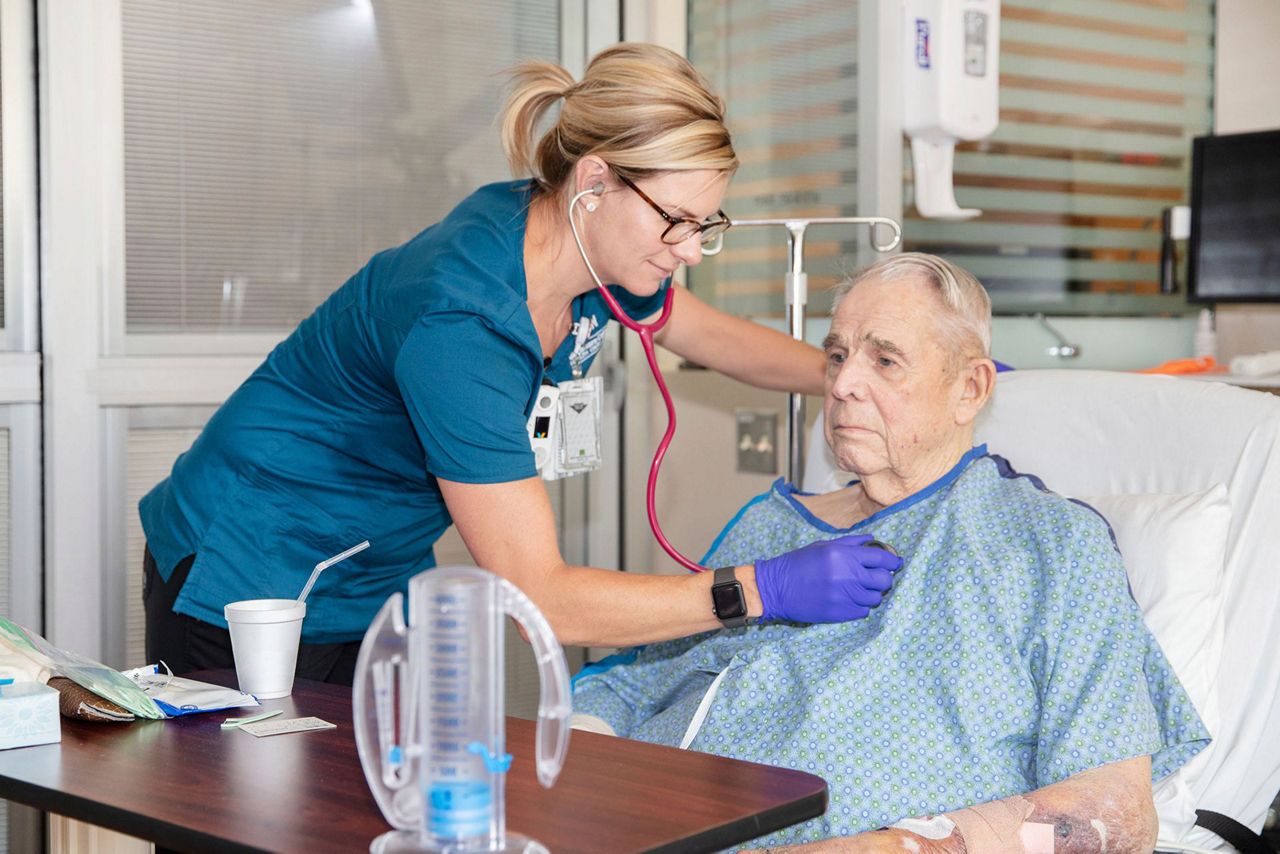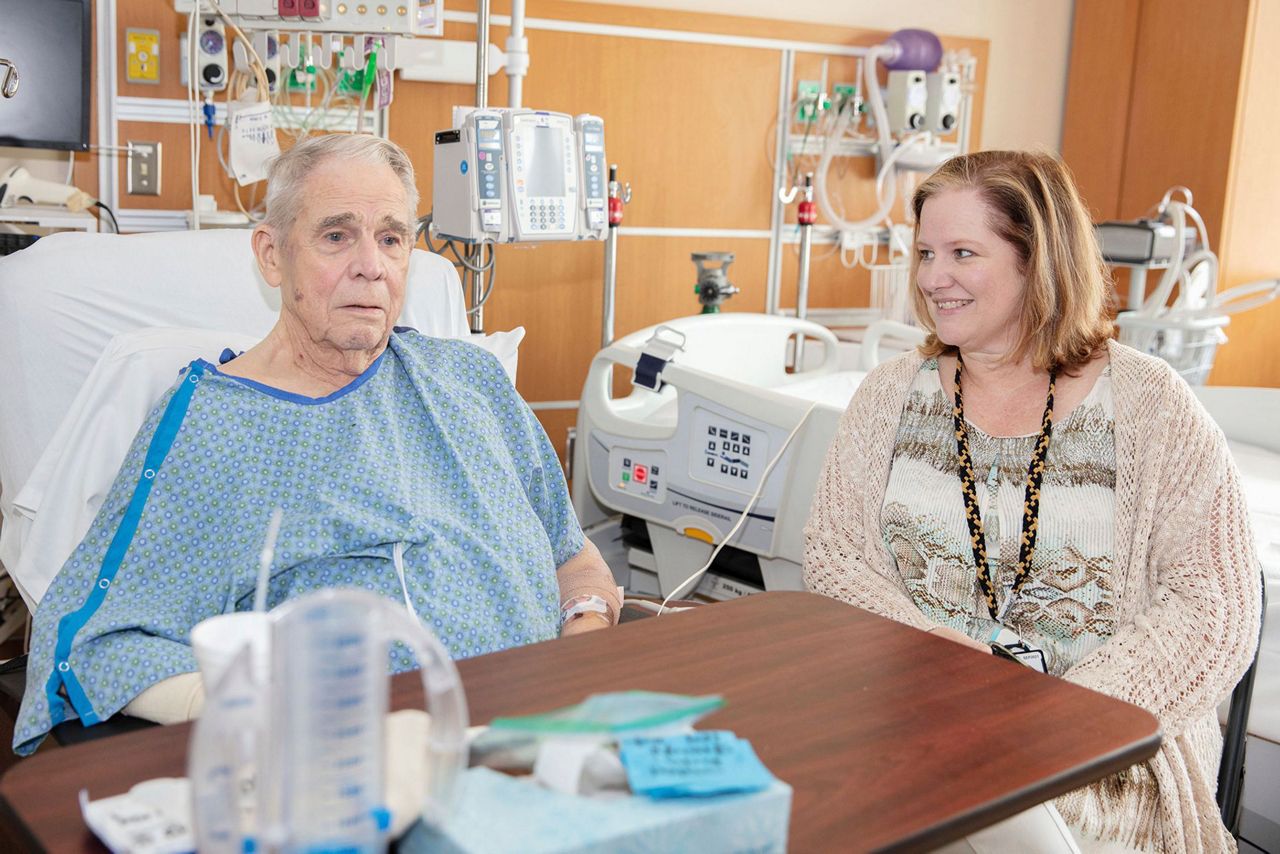WASHINGTON (AP) — The 92-year-old had a painful tumor on his tongue, and major surgery was his best chance. Doctors called a timeout when he said he lived alone, in a rural farmhouse, and wanted to keep doing so.
"It was ultimately not clear we could get him back there" after such a big operation, said Dr. Tom Robinson, chief of surgery at the VA Eastern Colorado Health Care System.
The Denver hospital is trying something new: When their oldest patients need a major operation, what to do isn't decided just with the surgeon but with a team of other specialists, to make sure seniors fully understand their options — and how those choices could affect the remainder of their lives.
It's part of a move to improve surgical care for older Americans, who increasingly are undergoing complex operations despite facing higher risks than younger patients.
The American College of Surgeons launched a program Friday to encourage hospitals around the country to adopt 30 new standards to optimize surgery on patients who are 75 and older — information seniors and their families eventually will be able to use in choosing where to get care.
Seniors account for more than 40% of surgeries, which is expected to grow as the population ages. Certainly there are plenty of robust elders who can withstand major operations.
But as people get older, they don't bounce back like they did even in middle age. Seniors rapidly lose muscle with even a short period in bed. They tend to have multiple illnesses that complicate recovery. And 15% of older adults who live at home — and a third of 80-somethings — face particular risks because they're frail, meaning they're weak, move slowly and get little physical activity.
The new standards stress team-based care and better communication about surgical risks and quality of life, to help patients choose their treatment. They must be evaluated for vulnerabilities such as frailty, being prone to falls or having dementia, and the hospital must have plans to handle them. After surgery, standards run the gamut from geriatric-friendly hospital rooms — with non-skid floors and windows to help stay oriented to day and night — to preventing post-surgery complications like delirium, a frightening state of confusion that can impair recovery and cause long-term memory and thinking problems.
Some of the steps have long been recommended, "but we realized guidelines are just that — they're suggestions. The uptake of them in hospitals is pretty spotty," said Dr. Ronnie Rosenthal of Yale University, who chaired the standards task force.
So the surgeons' group, with funding from the John A. Hartford Foundation, created a geriatric surgery "verification program," similar to programs credited with spurring trauma and pediatric surgery improvements. Hospital participation is voluntary, but those that join will be inspected and have to document how patients fare.
Eight hospitals including the Denver VA tested the standards. Robinson already sees a difference: 1 in 4 patients change their original surgical plan after a team review, and more go home rather than needing at least a temporary stay in a nursing home or other facility.
Consider that 92-year-old with a tumor on his tongue. After consultations with speech and swallowing experts, and an evaluation of his house, Robinson said the man ultimately chose a smaller operation. The tumor and only part of the tongue were removed to relieve pain rather than trying for a cure, and he returned home.
"These are difficult conversations," Robinson said. But choosing to spend, say, their last year at home rather than two in a nursing home, "those are trade-offs people are making."
After surgery, the standards also focus on seniors' special needs such as maintaining mobility; prompt return of glasses and hearing aids to help keep patients oriented and able to follow care instructions; and steps to prevent delirium that include avoiding risky medications.
To implement them, Robinson's hospital set up new nurse-led teams that check each older patient daily. For example, no more waiting for the surgeon to decide if physical and occupational therapy are needed; the nursing team puts that in place up front, explained geriatric nurse specialist Jennifer Franklin.
One of her team's patients, George Barrett, 85, of Lakewood, Colorado, is recovering from successful open-heart surgery, and being prepped to go to a cardiac rehabilitation facility to regain his strength.
"They told me about all the risks and I wanted to go ahead with it anyway," Barrett said of the surgery. "I want to hang around."
Even before any hospitals go through the quality-improvement program, the standards can offer guidance to seniors and their families in making surgical decisions. For example, make sure the patient's vulnerabilities are discussed up front: If dad already needs a walker, will being in the hospital make him worse? And what will the hospital do to help?
Especially make clear the patient's goals: "It's most important they ask, 'What will my life look like after? What will I be able to do?'" said Yale's Rosenthal.
___
The Associated Press Health and Science Department receives support from the Howard Hughes Medical Institute's Department of Science Education. The AP is solely responsible for all content.
Copyright 2019 The Associated Press. All rights reserved. This material may not be published, broadcast, rewritten or redistributed.




